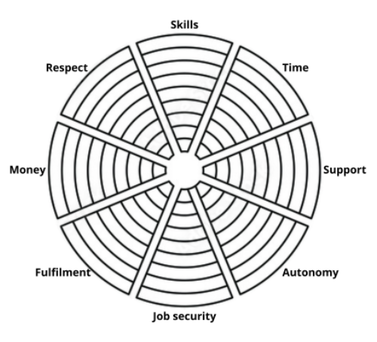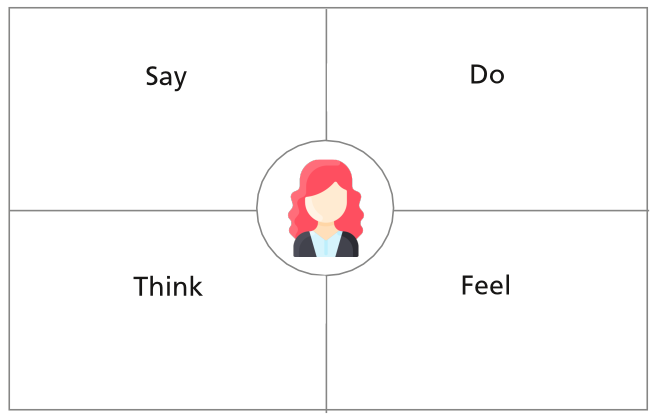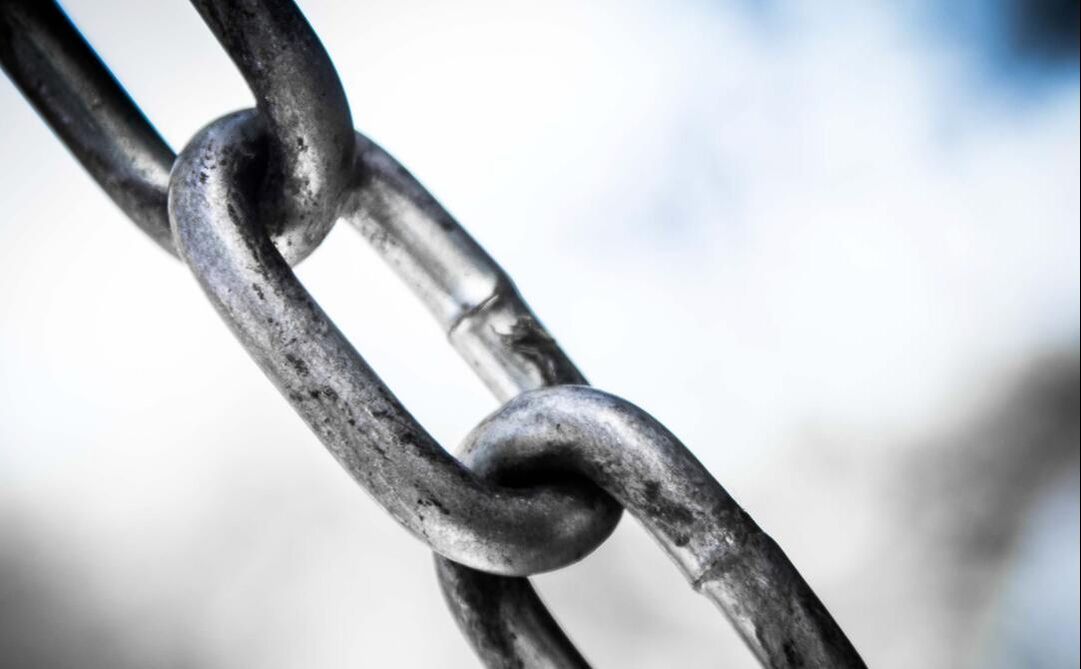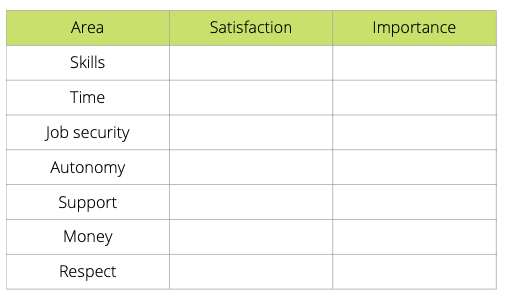|
Photo by Tom PREJEANT As “digital people”, we have a multitude of tools to help our clients understand themselves and their customers better. What's really interesting is that we rarely use those tools on ourselves or each other better. One thing that can help to make a difference in almost every interaction we have with other people is the ability to get a better idea of what's going on in other people’s heads and lives. My experience has shown me that everyone’s actions and behaviour make total sense to them based on their motivations and knowledge. As observers, we often miss parts of the picture, which is why other people can often confuse us. We’ve all had people who were frustrating to work with: the ones who seem to delight in blocking our progress or appear to want to undermine us. Once you see the world how they see it, you may see that we represent some kind of threat to them or their circumstances and they are simply protecting themselves against that risk. I have written about the kinds of things we things we perceive as threats elsewhere. Knowing that gives us all more options to play with which may include inviting them to share what's going on in their world and helping them find ways around the danger that we inadvertently pose. The empathy map” tool was created by Dave Gray at Xplane, but I recommend people use the simplified version from Nielsen Norman. It’s such a great tool for examining what a person might be thinking and feeling when all you have to go on is what they say and do. It allows you to step into their shoes and explore the world as they see it. A tool like this helps us not make assumptions about what we might do if we were in their place but to try to look through their eyes and see the world from their perspective. These are the elements of the tool:
Once you have gone through the exercise, think about what you can do that might smooth things over and improve your relationship with them. Is there something that they might benefit from hearing you say? Or do you need to ask more questions and let them understand you are open to hearing more of their thoughts? The information you expose doing the exercise will point you toward what needs to happen next. I’d like to recommend you use this tool whenever you notice you have challenges with other people - at home as well as at work. My experience is that the friction disappears because I understand how they are experiencing our relationship and how I could subtly change my behaviour to help them feel more supported and understood, even if I don't fully agree with them. Using this approach, I quickly began to see that people are tense or tetchy or downright unhelpful because of what's going on in their heads and that, by being empathetic, I could change the way that they responded to me and thus the outcome of our interactions.
0 Comments
Photo by Kei Scampa Resilience in the workplace has become an increasingly popular topic over the past few years. What exactly is resilience, though? Is it something that can be taught? And why should you care about your own or your employees’ resilience at work? The more you know about this important work-related skill, the more you’ll understand why it’s so crucial to employee engagement and productivity, as well as to your bottom line. Here’s what you need to know about resilience in the workplace, including how to determine if you need more of it and how to get it.
What is it? Resilience is the ability to bounce back from setbacks. When employees can turn disappointments into opportunities for growth, they become more engaged at work. So if you want to strengthen your workplace culture and boost employee engagement, it’s important to foster resilience. But what exactly is resilience? How does one obtain this? Read on! Why does it matter? Resilience is one of those skills that we never really notice until it’s missing. If you want to keep your employees engaged and invested long term, you need to cultivate resilience in yourself and your team. Employees with poor resilience have 55 per cent lower engagement at work (as measured by Gallup’s Q12 metric) and are 42 per cent less likely to want to stay with their employer. When you consider how many people hold each type of position on an average team, these effects are pretty substantial. Things you can do - and encourage others to do - to build resilience
In summary There are lots of things you can do to build resilience. Its really worth it. Improving your level of resilience will make you a more engaged employee, improve your relationships with others, and leave you with a greater sense of wellbeing. All of these factors have been linked to workplace performance – not just your engagement but also things like teamwork skills or creativity. This means that becoming more resilient can boost not just your own productivity but also that of your whole team. Photo by Jack Anstey Resilience is being able to remain strong during the toughest of times and darkest of days. Against common misconceptions and misunderstandings, resilience is neither lack of vulnerability nor lack of what are thought to be negative emotions such as sadness and anger. Instead, it is having a good head on your shoulders, or simply put, being mentally strong enough to be able to come out thriving even when the odds are stacked up against you. Another misconception is that resilience is a character trait that one is born with. This is false. Resilience is a skill that one acquires throughout their life as one interacts with different people and encounters various challenges. Just like with any other skill, you can acquire it, build up on it and also lose it.
This is the reason why you may find yourself having fluctuations in terms of how resilient you are in your day-to-day life. The reasons for this could be: You may not be fully self-aware Self-awareness is key when it comes to being resilient and maintaining your resilience all through. When one is self-aware, you have full knowledge of how you react to whatever may happen you. You know the things that trigger you, the things that hurt your feelings, the things that stress you out, those that make you anxious and so much more. When you are not self-aware, you will find it hard to feel like you are on stable ground because you never know just how much a given circumstance will impact you. Your responses will surprise you and have the potential to overwhelm you because you won’t be prepared for them. You may be letting other people’s opinions cloud your judgment It is often said that the only person whose opinion should be your number one priority is you. For most people, this is easier said than done and it is a leading factor in why their resilience fluctuates a lot. For example, if you have always wanted to start your own business and quit your corporate job and you bring it up to your colleagues but no one is in favor. All of them try putting your dream off but you do not care about their opinion so you do it anyway. However, as more negative feedback from other parts of your life creeps in, you go back to your corporate job and feel furious with yourself for having done it. You may not be empathetic enough to other people Having selective empathy means that you only show empathy towards some people and not others. This is why you may have parts of your life that are much more harmonious than others. Not being able to imagine being in other peoples’ shoes, to see the world through their eyes and understand their perspective, introduces a resistance on your side which is easily discerned by the other person. You quickly can get to an unhelpful standoff that will lead to life seeming harder than it has to be. So, what to do? When it comes to self-awareness, this is definitely a skill that can be built by both planning ahead and reflecting on events after they happened. In advance of an interaction that could be challenging, brainstorm what could happen and consider how you might feel if it did happen. Afterwards, think about what actually happened and, if it wasn’t ideal, how much of it was influenced by what you felt. In regards to being influenced by other people’s opinions, again, being prepared can help. Think about where their opinions come from and whether they are the right people to be advising you. There is often a fear of repercussions of not taking someone’s advice. You may worry that they will remind you of it endlessly if things don’t go well. Ask yourself whether that really matters or it’s just a minor discomfort for you. What would you say to a friend who was going through what you are going through? Empathy is also a skill that can be built, both for ourselves and others. Practice putting yourself fully inside the head of other people. What excites them? What scares them? What don’t they understand about what’s going on in your world? Fill in those information gaps and suddenly everything gets a lot clearer! Photo by Sneaky Elbow Resilience can be summed up to be the one’s ability to handle setbacks that occur in life. Improving resilience means you can bounce back quickly when you need to and also not experience the extreme highs and lows that can be very overwhelming at times. Easier said than done, right? What is the best way to recover from having your heart broken? How do you navigate that pain and bitterness? How do you handle yourself as you undergo chemotherapy for cancer? Surely, it’s just as tough for everyone, isn’t it? How do you manoeuvre around a difficult task at work? How do you deal with stubborn or demanding relatives? All these need resilience but as you have probably picked up by now, they are not on the same level as stress factors. That is why you need to have the different kinds of resilience to be able to efficiently go through your life.
The types of resilience There are different kinds of resilience, each playing a role when it comes to our ability to handle all the kinds of stress that we are all likely to experience in the world today. These include: Physical resilience Are you often unwell? Do you find that a small thing like a cold can often turn into an infection and lead to time off work or even a hospital visit? You probably lack physical resilience. Physical resilience is said to be how it is that one's body reacts, deals with, and ultimately recovers from physical injuries, illnesses, and demands. Research has shown that physical resilience impacts not only how people age but also how their bodies can recover from any kind of medical issues and physical stress. Eating well (mostly unprocessed foods your ancestors would recognise and not too much), reducing alcohol consumption, getting enough sleep as well as exercising regularly can really help to build physical resilience. Mental/emotional resilience This kind of resilience is the ability of a person to adapt to both change and uncertainty. If you are mentally resilient, you will possess flexibility as well as general calmness during moments of trouble or crisis. You will be able to stay positive and bounce back from challenges, remaining hopeful in the face of adversity. Mental resilience can be built in a variety of ways including practicing self-compassion, gratitude, mindfulness and learning to see events as only having the meaning we attribute to them. Social resilience This is also called community resilience. Social resilience is how well groups can effectively recover from tough situations. You need to be able to connect with other people as well as work in a group to get solutions to issues that affect both yourself as an individual and the group at large. Some aspects of social resilience are providing support for each other socially by being aware of the various issues that affect the community and generally building a sense and feeling of belonging and a community. This was something that many communities saw increase in the early days of COVID 19. Building resilience, like building muscles, takes time and patience, but the payoff is huge. For the longest time, you may not even notice you are making progress, not until you are mentally or physically put to the test. The ability to regulate and handle emotions when stressed, stay calm when things aren’t going the way you’d hoped and to be able to rely on your body to bounce back from illness and injury is the key to having a strong sense of happiness and wellbeing. Photo by Matthew Lancaster Something unexpected happens to you and it completely knocks you off your feet. You may fall apart, lose weight, get overwhelmed, and much worse, yet, when something similar happens another time, you sail though it as if nothing had happened. Amazingly, you bounce right back even better than you were before. This can be quite confusing to someone because how is it that two things that affect your life equally impact you in such different ways. Why don’t you react the same way both times?
There are a few possible reasons for this: a) Setbacks that have a link to past trauma will hurt more Past trauma can be the trigger for surprising emotional responses, even if it’s something you hardly remember, or thought had been resolved. Anything that happened in your early life that hasn’t really been dealt with, can, when resurfaced, knock you sideways when you experience something that feels similar. For example, if you were brought up in an abusive household and find yourself with an abusive colleague, your response may be strongly influenced by your old memories may and even bring up the old feelings that you felt as a child. b) Your support network may not be as strong as it once was Having a strong circle of supporters behind us can make us more resilient. Having people to talk to about what is going on has been shown to be as effective as having counselling, But support groups are made up of individuals whose circumstances change so there may be times when you don’t feel as though you have someone to turn to because they have moved away or have a lot going on themselves. c) Giving people's opinions too much power Linked to the previous point, when you are going through challenging times, you may have people around you who aren’t rooting for you and even offer discouraging advice. Letting the naysayers influence you will get in the way of bouncing back from the setback. Just because someone says something, it doesn't have to be true! You do not have control over what things happen to you, but you do have control over how you react to what has happened. Try to remain objective and not let past experiences and other people’s opinions influence your interpretation of events. If your support network isn't up to the job, for whatever reason, please consider expanding your options or getting some professional support. That will help you work out what needs to happen to get you back on your feet and ready for more! When things look a little bleak, is there one thing you can do to make today better than yesterday?21/6/2022 Photo by engin akyurt Often, when we face a setback, it's tempting to wish we could go back to the way things were before everything changed, to see if we could have done anything to change the course of events. If for example, you have just been told you didn’t qualify for a promotion, it can be really challenging to just show up the following day and act as if nothing had happened. If you have ever had a terrible or disappointing day and you just wish you could wipe the slate clean and start again, this article is for you.
Take the new day as a fresh opportunity Yes, yesterday may have been one of the worst days of your life but there are a few things that you could keep in mind while treating a new day as a fresh opportunity:
Life is full of ups and downs. It's unavoidable. Treating every day as a fresh start will certainly help you bounce back from whatever challenges life gives you. Photo by Road Trip with Raj Life is full of emotional injuries, it’s unavoidable. And the damage ranges from tiny hurts, like someone forgetting to hold the door open for you to huge, like when you experience loss of someone or something significant, like a parent or life partner. Some injuries are caused by a one-off event and others have a long timeline and result in a buildup of ongoing stress.
In my career, I have experienced a wide range of emotional injuries, and I believe its so common, I would love to hear from anyone who has a few years of work under their belt and has had a totally smooth ride. That said, some injuries are just small bumps and knocks and its easy to get up and get going and, generally, forget they every happened. And some knock you sideways and it’s hard to believe that life will ever be the same again once they are over. Like with a physical injury, it’s worth having a process for dealing with emotional pain. This is a 4 step framework I recommend: Step 1: Assess the damage How bad is it? Is it just a bruise to your confidence or is it really impacting on your life possibly by interfering with your sleep or ability to concentrate? If it’s severe and your life doesn’t feel the same, then it’s time to get some therapeutic support. Your GP is a good first out of call for this. If its just very painful but you feel nothing is broken, it’s time to assess whether you are able to manage it yourself or hire a thinking partner to coach you through some exercises to strengthen your emotional resilience. Step 2: Make a plan Alone or with your coach, you will need to create a plan, to respond to the source of pain: do you need to get out of the situation you are in or maybe you need to make changes so that it’s better designed for your needs. Are there skills that you need that would make a similar injury less likely to happen in the future? Perhaps a change of perspective might make things look very different. Step 3: Implement Now you know whats needed, it’s time to take action. Easy in theory but sometimes a lot toucher in practice when it’s easy to get discouraged or otherwise put off. How are you going to hold yourself accountable, especially at a time when you might still feel emotionally under par, in order to see that planned changes though? Make sure you put a plan in place for this otherwise you risk letting negative behaviours like procrastination and fear of moving out of your comfort zone stop you making progress. Step 4: Evaluate There are no guarantees any intervention will be 100% effective. The only way of assessing how well you are doing is by observing and assessing. Are the symptoms still present? If they are noticeably easing, you will recognise that you are on the right track. Time to pat yourself on the back and carry on with whatever you were doing. If some time has passed and the emotional pain hasn’t reduced in any way or has actually increased, please consider getting some professional support if you didn’t take that option earlier. Either in the form of a therapist if the pain is acute and interfering with your normal life, or a coach who can help you build the skills to help shrug it off, now and ideally in the future. Need help getting over an emotional injury? I can help you bounce back better than ever! Please use this link to book a free call so we can talk about whats going on for you. Photo by The Ian Handling rejection and being able to bounce back from any setback are some of the most important skills for anyone to have. As you go through life, just as you experience achievements and highs, so is it normal for one to experience lows that could be in the form of rejection, failures, and setbacks.
What you do when you are faced with a setback and how you handle the situation are what determine how it is you will perform the next time. It is true that persistence is what guarantees success in whatever field you are interested in. But how is it that one can bounce back and stay committed after a challenging setback? Below are five ways: 1. Redefining the term failure We have all heard at one point that our setbacks usually lead to some of the best insights and opportunities for success, but it is not that easy to believe the words. When you get a no from your boss after a project that you had been working extremely hard on, or you even get fired, you should take a step back and remind yourself that what has happened is unchangeable and it is only a speck in your whole story. You probably need to channel your energy towards something better, you will probably be able to go apply and get the job of your dreams since you were a child because you no longer have the safety net of your old job. Once you start looking at failure as a door to something greater, bouncing back will be easier. 2. Allow yourself to feel disappointed but do not let it consume you When you fail to get the promotion you have been yearning for, you will experience feelings of disappointment and even sadness. You may even be angry at the world, or your boss and jealous of whoever got it instead of you. When you get yourself in this situation, allow yourself to feel your emotions but do not allow your feelings to dictate how you act. Take a walk, process the news you have just received, and remind yourself that better opportunities are still awaiting you. 3. Do not focus on trying to pin the blame Yet another issue that a lot of people face is trying to pinpoint the blame of the setback on someone. It is understandable because having someone to blame is considered an easy way to direct your anger and frustrations. Do not let this be you. Accept what has happened. Yes, your business deal did not go through but do not start blaming your intern because you are looking for an avenue to release your frustrations. Take it as it is. 4. Focus more on the process and less on the outcome Focusing on the outcome of a project will often lead to people losing sight of what is really important, that is the process of what you are doing, and all the lessons they are gathering along the way. That is why if at they experience a setback, they are likely to get extremely devastated and not know how to come back from it. As you go through your daily activities, remember to be present in everything you do and enjoy the process! 5. Get feedback and move accordingly If at all there is anyone you can approach to clarify for you why something did not go as you anticipated, do so. For example, after being let go, ask your boss what actions of yours led to the decision and accept the feedback. In doing so, you can take pointers and do better, and generally be better. In everything you do, even when faced with setbacks always remember to be persistent and keep going and you will bounce back better than ever! One of my very favourite tools for taking stock is a values assessment. Values define who we are and what matters to us. When we find ourselves in situations where our values are compromised, we can become stressed and anxious. When we hold goals that are in conflict with our values or don’t address enough of our values, we tend to procrastinate because the tension stops us being able to make progress. Values do change over time depending on circumstances. By being aware of our values, we are in a better position to:
Use this list to identify the 10 values that are most important to you. Then order them in terms of their importance to you.
Click here if you would like an at-a-glance page summarising the tool. Please get in touch if you have any questions and do share your experiences of using this tool in the comments area below.
 My favourite starting point for taking stock is to take a measure of where you are right now, in a holistic sense, to answer the question “how are you doing in all areas of your life?”. The Wheel of Life is a great tool for that. In its most basic form, it is a circle divided into 8 sections. Each section is devoted to an area of your life. The example on the right focusses on career, but the tool can be adapted to suit whatever circumstances you need to explore. Essentially, you rate each area of your life on a scale of 1-10 in terms of how satisfied you are with that facet of your life and then how important it is to you. The second rating is very important because it isn't worth spending time on on something that you don't care about much! You might find it useful to use a table like the one below: By getting it out of your head and on to paper, you are able to see how you are doing and how important that is to you. It helps you decide what needs your attention and offers a glimpse of what might happen if you chose not to pay attention.
Click here if you would like an at-a-glance page summarising the tool. Please get in touch if you have any questions and do share your experiences of using this tool in the comments area below. |
Author25 years experience in helping teams build user centred products and services, now helping digital colleagues learn how to bounce back better than before from the challenges life throws at us from time-to-time. Archives
December 2022
Categories
All
|











 RSS Feed
RSS Feed